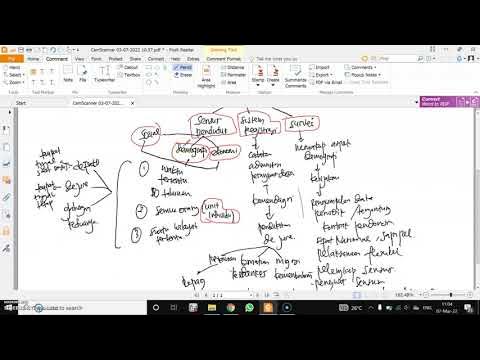How Facebook Tracks Your Data | NYT
Summary
TLDRThe transcript explores the extensive data collection practices of Facebook, highlighting how the platform gathers personal information from users, their interactions, and external sources. It discusses the use of nearly 100 data points to build user profiles, track locations, and even monitor offline purchases through partnerships with data brokers. Controversially, Facebook's 'People You May Know' feature utilizes location data to suggest potential connections, while its involvement in tracking political activities raises privacy concerns. Ultimately, the video emphasizes Facebook's ability to predict future behaviors, revealing the depth of its data analytics and the implications for targeted advertising.
Takeaways
- 😀 Facebook collects extensive personal data from users, including names, ages, and interests.
- 🕵️ Facebook combines user-submitted data with external sources to create detailed user profiles.
- 📊 The platform uses nearly 100 data points to classify user interests and activities.
- 🚶 Location tracking allows Facebook to gather significant information about users' movements and habits.
- 🛍️ Facebook tracks both online and offline purchases through partnerships with data brokers.
- 🤝 The 'People You May Know' feature uses various signals to suggest potential connections, including location data.
- 📍 Facebook can infer connections based on shared locations and interactions, even without direct user consent.
- 📢 The platform can monitor political activities, including protests, through location data and social media scraping.
- 🔮 Facebook predicts future behaviors and life outcomes based on user data, aiding advertisers in targeting strategies.
- 💡 Advertisers leverage Facebook's extensive data collection to refine their marketing efforts and reach specific audiences.
Q & A
What kind of personal information does Facebook collect from its users?
-Facebook collects various personal details such as names, hometowns, ages, birthdays, and interests directly submitted by users.
How does Facebook combine user data to create profiles?
-Facebook combines user-submitted data with information from other users and external sources to construct detailed profiles, utilizing nearly 100 different data points.
What types of data points does Facebook use to classify user interests?
-Facebook uses both basic data like age and gender, and more complex indicators such as ownership of specific items (e.g., motorcycles) or recent life events (e.g., vacations).
In what ways does Facebook track users' locations?
-If location tracking is enabled, Facebook collects extensive data on users' movements, including where they go, where they come from, and their frequented businesses.
How does Facebook track offline purchases?
-Facebook tracks offline purchases through partnerships with data brokers, which collect information about users' buying habits and match these transactions with Facebook accounts.
What is the 'People You May Know' feature, and how does it work?
-The 'People You May Know' feature suggests potential connections based on various signals, including phone contacts and shared locations, allowing Facebook to recommend acquaintances from similar environments.
How has Facebook's data collection practices raised concerns regarding civil liberties?
-Facebook's ability to compile data on political activities, such as attendance at protests, has raised ethical concerns, especially when law enforcement uses this data to monitor individuals.
What is Geofeedia, and how does it relate to Facebook's data?
-Geofeedia is a service used by law enforcement that scrapes data from social networks, including Facebook, to identify users based on their location and involvement in events like protests.
What future behaviors can Facebook predict about its users?
-Facebook can predict various future behaviors, including potential substance addiction, political affiliation changes, and general health status, which advertisers find valuable for targeted marketing.
Why do advertisers value the data collected by Facebook?
-Advertisers value Facebook's data because it helps them create more effective targeted ads by understanding users' interests, habits, and predicted behaviors.
Outlines

Esta sección está disponible solo para usuarios con suscripción. Por favor, mejora tu plan para acceder a esta parte.
Mejorar ahoraMindmap

Esta sección está disponible solo para usuarios con suscripción. Por favor, mejora tu plan para acceder a esta parte.
Mejorar ahoraKeywords

Esta sección está disponible solo para usuarios con suscripción. Por favor, mejora tu plan para acceder a esta parte.
Mejorar ahoraHighlights

Esta sección está disponible solo para usuarios con suscripción. Por favor, mejora tu plan para acceder a esta parte.
Mejorar ahoraTranscripts

Esta sección está disponible solo para usuarios con suscripción. Por favor, mejora tu plan para acceder a esta parte.
Mejorar ahora5.0 / 5 (0 votes)






